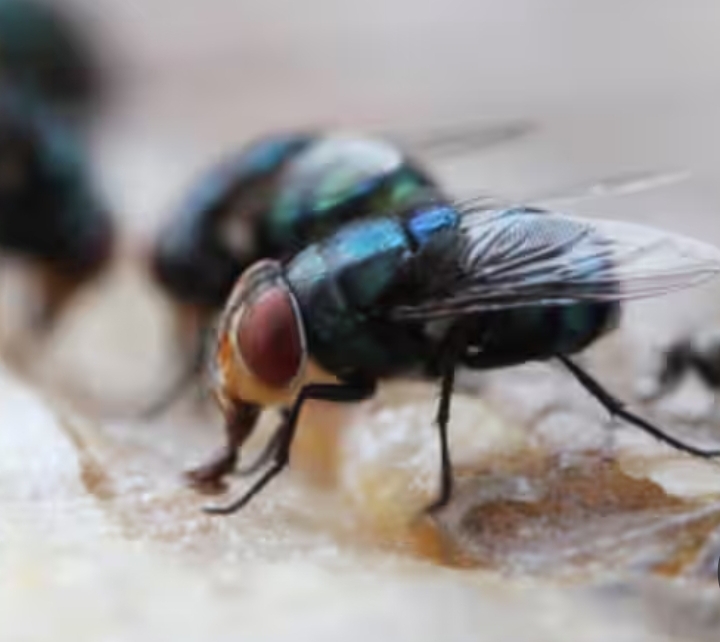Scientists in Nigeria found that insects, including houseflies, carry infections resistant to last-resort antibiotics, raising concerns about the spread of superbugs in hospitals. This highlights the growing threat of antimicrobial resistance (AMR) and its potential impact on vulnerable patients.
Flies in Hospital Wards May Spread Drug-Resistant Bacteria to Patients


Flies buzzing between hospital beds may be contributing to the spread of drug-resistant bacteria among patients, according to new research.
Researchers from the Ineos Oxford Institute for antimicrobial research (IOI) discovered that houseflies in hospitals across Nigeria carry bacteria resistant to critical antibiotics, including those typically reserved for the most severe infections.
Antimicrobial resistance (AMR), a phenomenon where bacteria and other pathogens develop resistance to the medications designed to combat them, is a growing global concern. It is projected that AMR will lead to the deaths of over 39 million people by 2050. Hospital-acquired infections, particularly those contracted by patients already undergoing treatment, are also an increasing issue.
The team at IOI collaborated with Nigerian researchers to collect a total of 1,396 flies from eight different hospitals across six cities. These flies were caught using sticky traps. The tests revealed that the flies were carrying 17 different species of bacteria, including Staphylococcus aureus, a common cause of hospital-acquired infections. Alarmingly, a significant portion of the bacteria contained genes associated with antimicrobial resistance.
Though the study cannot definitively prove that flies are directly spreading these bacteria, Dr. Chioma Achi, the project lead and co-author, described the findings as “very worrying.” She explained that the presence of antimicrobial-resistant bacteria in the flies could suggest that they are potential vectors for AMR in hospitals, particularly in tropical low- and middle-income countries, where flies are abundant.
Dr. Achi further explained that flies are coprophagic, meaning they feed on feces and manure. When they land on infected material, they can pick up bacteria and then transfer it to surfaces, food, and other areas within the hospital where people touch, potentially contributing to the spread of infections.
Dr. Kirsty Sands, scientific lead at IOI and co-author of the study, emphasized the implications of the findings, suggesting that flies in hospital wards could pose a significant risk to vulnerable patients who are already at risk of infection. Flies frequently land on patients, further amplifying this risk.
In 2019, Nigeria ranked 20th globally in AMR death rates, with an estimated 263,400 deaths linked to antimicrobial resistance.
This research, published in Environment International, builds upon the team’s earlier study conducted in a hospital in Pakistan. In that research, ants, spiders, flies, and cockroaches were found to carry multidrug-resistant bacteria, which were linked to infections at patients’ surgical sites.
Dr. Achi stressed the importance of recognizing the connection between human and animal environments in addressing the AMR crisis. The team is planning future studies to investigate whether insect control measures, such as window screens and bed nets, could help reduce the spread of AMR in hospitals. Additionally, the Nigerian study will serve as a pilot for a larger, multi-country research initiative focused on the role of insects in the spread of AMR in hospital settings.

 বাংলা
বাংলা  Spanish
Spanish  Arabic
Arabic  French
French  Chinese
Chinese 
